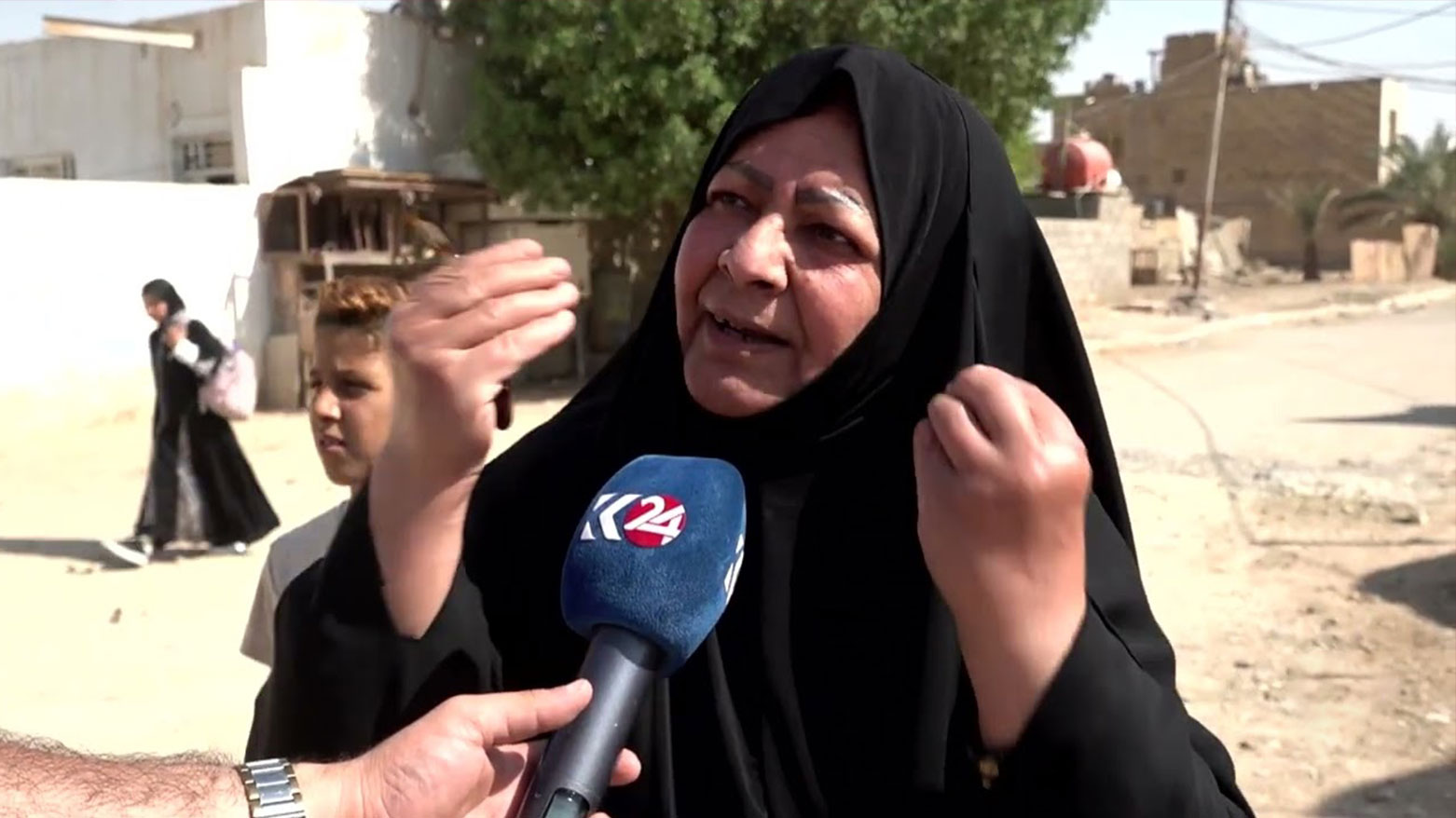Iraq’s Southern Provinces Urge Equitable Development and Effective Services
Residents across Iraq's southern provinces report deteriorating infrastructure, inadequate services, and uncompleted projects despite large development budgets. Citizens in Maysan, Diwaniyah, and Basra are calling for equitable development, transparency, and effective local governance.

ERBIL (Kurdistan24) – In Iraq’s southern heartland, citizens are voicing growing concern over deteriorating infrastructure, limited access to essential services, and years of administrative challenges that have left many communities struggling to meet their basic needs. From the streets of Maysan to the neighborhoods of Diwaniyah and the banks of Basra’s rivers, a call for sustainable development and stronger local governance is resonating across the region.
In Maysan, where streets are covered in dust and waste, residents express frustration at the prolonged lack of municipal attention. Roads remain unpaved, power lines lean precariously, and the sanitation system has long ceased to function effectively.
“The issue begins with both the citizens and the municipality,” one resident told Kurdistan24, gesturing toward an overturned garbage container. “Even when we try to keep our streets clean, the lack of maintenance makes it impossible. The city has turned into an open waste site.”
Local citizens emphasize that the situation has persisted for years without visible improvement. “They started a water and sewage project eight years ago and never completed it,” another resident said. “Other neighborhoods developed, but we were left behind.”
A senior resident pointed to a damaged electricity pole and added, “I reported it several times. It’s dangerous, but no one came to fix it.”
Others expressed deeper concerns about equality in public service delivery. One woman told Kurdistan24, “We just want our neighborhoods to be safe and clean for our children. The conditions are unhealthy, and the smell is unbearable. We feel forgotten.”
Amid recurring election promises, citizens say they hope the new local administrations will adopt serious, transparent development plans to restore trust and improve daily life.
In Diwaniyah, residents face a similar reality — “deteriorated infrastructure, suspended projects, and a visible lack of essential services. Streets are damaged, garbage piles line the roads, and many families struggle with poor sanitation and housing conditions.”
“Diwaniyah is exhausted,” a taxi driver told Kurdistan24. “There are no proper roads or sewage systems. Everywhere you look, there is neglect.”
The city’s youth, facing unemployment and limited opportunities, often describe their environment as stagnant despite the significant financial allocations announced in recent years. Between 2022 and 2025, Diwaniyah’s development budget reportedly exceeded two trillion dinars (approximately $1.5 billion), yet many residents say they have not seen the impact of those funds.
“People here are not asking for much,” said an elderly driver. “We just want functioning roads, hospitals, and clean neighborhoods.”
In the “al-Noor” district, shopkeepers expressed frustration at the slow pace of change. “Every few years, new promises are made, but little changes on the ground,” one local said. “We want the government to follow up and make sure projects are completed.”
Residents are calling for accountability, stronger oversight, and transparent mechanisms to ensure that public funds are directed toward genuine service delivery and urban renewal.
In Basra, a city rich in natural and economic resources, residents continue to suffer from a persistent water crisis that has affected health, livelihoods, and the environment. Despite its rivers and vast oil wealth, the southern province faces severe salinity, pollution, and infrastructure decay.
“This is the water we receive at home — salty and unfit even for washing,” a resident told Kurdistan24, holding up a container filled with murky liquid.
Locals say that for months, they have relied on privately delivered water at high costs. “We buy water from tankers for 20,000 dinars per barrel,” said resident Abdulmutalib Awad. “It’s not sustainable for families with limited income.”
Hospitals in Basra continue to report rising cases of waterborne diseases, as contamination in the Shatt al-Arab worsens due to reduced flow and pollution. “Even animals can’t drink this water,” another resident remarked.
Many citizens urge the government to prioritize long-term water management strategies and invest in modern purification systems. “Basra has everything — rivers, oil, and resources — but people still struggle for clean water,” said one activist.
Local observers highlight that while development projects have been launched in recent years, coordination between central and provincial authorities remains crucial to ensuring tangible improvements in citizens’ lives.
Across Maysan, Diwaniyah, and Basra, the common message is one of dignity, inclusion, and hope. Citizens are not calling for luxury but for fairness — for streets that are safe, homes that are livable, and institutions that respond to their needs.
In the words of one resident from Maysan:
“We don’t ask for more than what others have — just to live as humans should.”